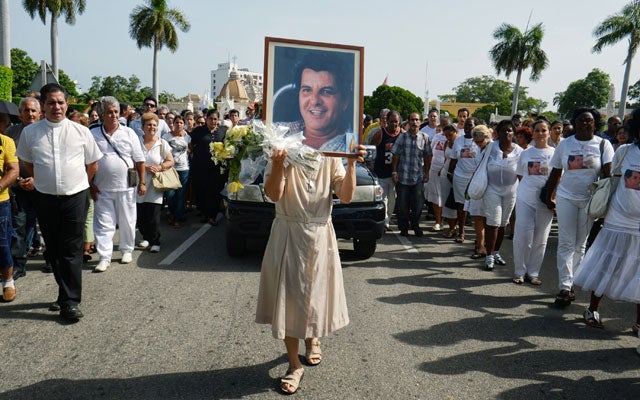Recent remarks by Spanish official Ángel Carromero in The Washington Post are shedding new light on the events that resulted in the death of Cuban dissident and human rights activist Oswaldo Payá.
Carromero was driving the vehicle in which Payá was traveling along with two other passengers in July 2012 when a car with Cuban government license plates rammed his vehicle and caused him to lose control. Payá and another passenger were killed. Carromero was convicted of vehicular homicide by the Cuban government in October and sent back to Spain in December to finish the last four years of his sentence.
Before his death, Payá received both international attention and the hostility of the Castro regime through his pioneering work at the Varela project. The project called for democratic changes in Cuba’s laws through a referendum that gained more than 25,000 signatures. For this work, Payá received the Sakharov Prize for Freedom of Thought from the European Parliament in 2002 and was nominated for the Nobel Peace Prize by former Czech President Vaclav Havel in 2005.
The evidence described in Carromero’s interview contradicts the Cuban government’s reports, leading Payá’s family to demand an independent investigation of the crash. Rosa Maria Payá, Oswaldo’s daughter, gave a speech in Geneva last month asking the U.N.’s Human Rights Council to call for an independent investigation of her father’s death.
These calls have been seconded by the U.S. The State Department explained that the “people of Cuba…deserve a clear, credible account of the events” that caused Payá’s death. This position on the part of the Obama Administration is supported by eight Senators who signed a letter requesting an investigation by the Inter-American Commission on Human Rights, a human rights watchdog within the Organization of American States.
The Cuban government maintains that it did no wrong and that the dissident’s death was an unfortunate accident. But few are buying this line.
To quote the Senator’s letter, Payá’s “memory and family deserve an honest and independent accounting of what happened.”
Yvette Betance is currently a member of the Young Leaders Program at The Heritage Foundation. For more information on interning at Heritage, please click here.

